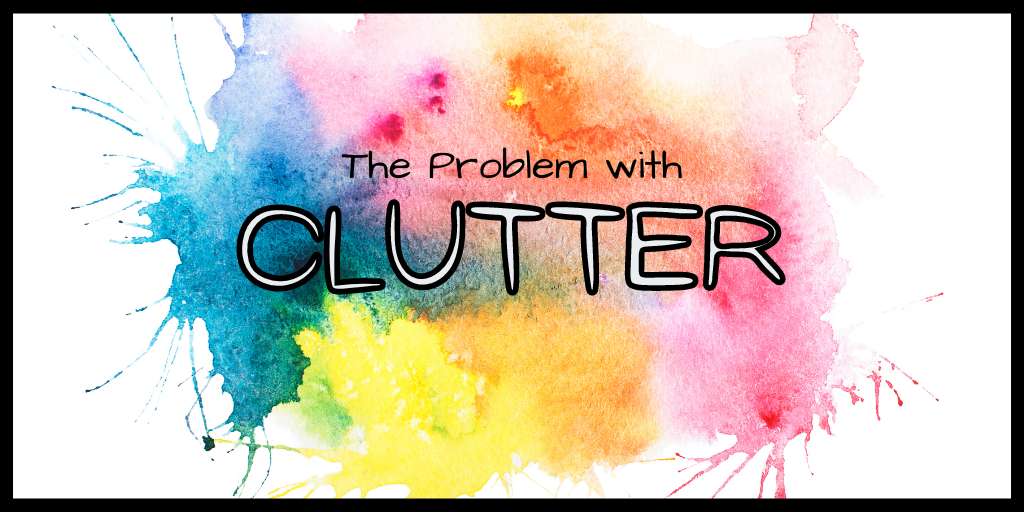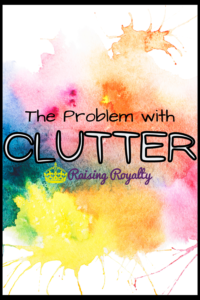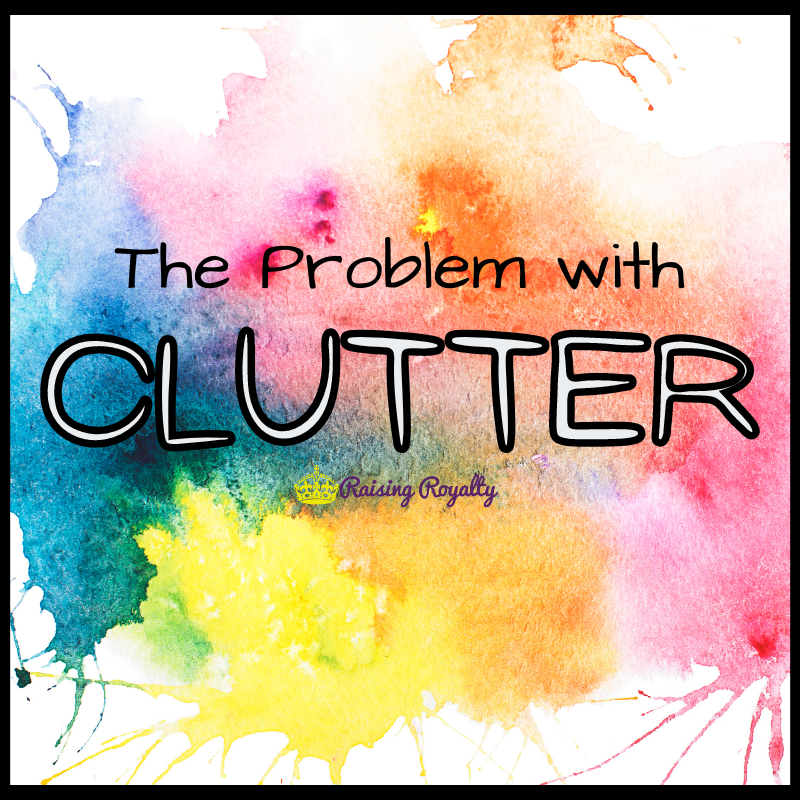

Clutter can be a problem for many of us. That collection of disorganized, unrelated items that just piles up in the corners or gets scattered around the house, with no real reason or purpose adds stress and chaos. It’s not enough that you don’t know what to do with the stuff, but it has to create more anxiety too. So how do we deal with clutter?
Clutter is common to many people.
From seniors who have years of accumulation, to busy parents with no time to deal with their clutter, to professionals who have more demands on their time than time to deal with it, anyone can fall into a cluttered home and life.
And that’s part of it. Clutter isn’t just the physical stuff, but it can be emotional baggage, mental disorganization, over-committed schedules, and strained relationships. Cleaning up the clutter can free you from physical, mental, and emotional stress.
Clutter causes more problems too!
Having a cluttered environment can be dangerous to your health. Too much stuff makes it harder to clean and maintain your home. And that can lead to all kinds of health issues, especially respiratory ones.
Having a cluttered calendar can be dangerous to your success. When you have no time to handle anything, your ability to simply do things is affected. You can’t do as much, and what you can do isn’t going to be done as well.
Too much clutter is a strain on your finances and your relationships too. When you can’t find things in your mess — from physical items to billing dates — you end up buying twice as much and paying extra. And when you’re overwhelmed with clutter, it’s hard to enjoy relationships or work on those commitments that are important to you. Clutter is isolating and demotivating.
So what causes clutter?
Clutter has many causes. Procrastination and impulse decisions can lead to accumulating more than you have space for. Major life changes can turn an organized person into one overwhelmed by clutter. And some of us grew up with more clutter, so it’s just part of our normal — even when we know it can be better.
But clutter is most often caused by four things: a lack of time, lack of space, lack of planning, and difficulty letting go. When you have no time or space to deal with the collected chaos, it builds up. And if you don’t have a plan or system for regular review and decluttering, it’s easy to put off dealing with it. And letting go — especially to emotional attachments — is hard at the best of times, never mind when you’re overwhelmed and tired.
But a decluttering session can be as good for your health as a therapy session or workout! So let’s go over how to deal with clutter and declutter, without making a bigger mess.
First, pick a target.
Clutter doesn’t happen overnight, and the fix won’t happen all at once either. So set a goal and choose just one spot or area to declutter. Get specific, and focus on the result you want to see when you’re done. Keep your goals simple and doable. Don’t try to declutter too much, or you’ll end up either completely overwhelmed in a worse mess or you’ll run out of time to finish. Start small.
Next, set aside the time.
In keeping with clear targets and defined results, you’ll want to make sure you have a plan and set aside the time to deal with clutter. Decluttering can be emotionally, mentally, and physically exhausting. So keep your decluttering sessions limited and focused.
Then, be systematic.
The actual act of decluttering involves three steps: sort, choose a home, and put it away. So this means that as you’re removing the items from your cluttered target, you’re making decisions about each item. You categorize it as something to keep or get rid of, and then you choose where it goes.
If you’re keeping it, you make it part of your life and find it a home. For example, a physical item needs to have a storage or display space. Something on your calendar needs to have margin around it. Making the item a regular part of your life means making space for it so that it’s no longer clutter.
If you’re getting rid of it, there are different decisions to make. For example, physical items can be sold, given away or disposed of — all of which have different actions and storage requirements. Emotional items such as toxic relationships may require support to get rid of. It’s hard to let go sometimes. And mental clutter can be the hardest to declutter because mental clutter is often habitual. So you’ll need to put in the work to replace bad habits with good ones.
Finally, prevent more clutter from accumulating.
This can be as simple as reducing your impulse buying and being more mindful about what you commit to. Or it could mean that you develop your own personalized organization system to manage your home, time, energy and thoughts. Being deliberate about your choices is a great place to start, though.
Clutter can leave people feeling frustrated, embarrassed and annoyed with themselves and others. But decluttering can improve your mood, your sleep, your health and hygiene, and even your finances and relationships.
You’re not alone if the thought of dealing with clutter is just as overwhelming as the clutter itself. Be kind to yourself and don’t be afraid to get help if needed. There are plenty of professional services that can help you dig out and give you a reset if you need it. And there’s no need to declutter everything all at once. Just pick a drawer, a day, or a habit to declutter, and work on one thing at a time.
Eventually, decluttering becomes a habit, and then the clutter is gone! Or at least much more manageable.





